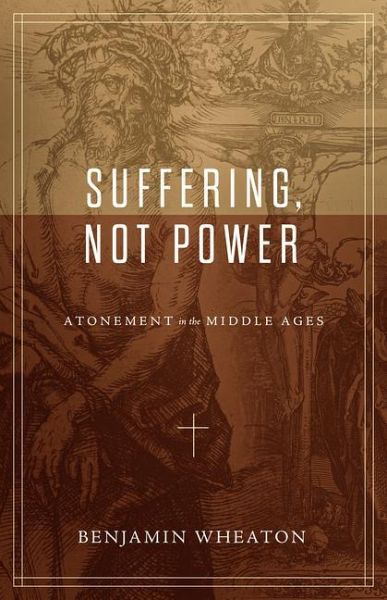
Suffering, Not Power
Atonement in the Middle Ages

PAYBACK Punkte
10 °P sammeln!
"In Suffering, Not Power, Benjamin Wheaton challenges the common narrative that Christ's work of atonement was reframed by Anselm. Rather, sacrificial and substitutionary language was common well before Anselm's Cur Deus Homo. Wheaton displays this through a careful analysis of three medieval theologians whose writings on the atonement are commonly overlooked: Caesarius of Arles, Haimo of Auxerre, and Dante Alighieri. These figures come from different times and contexts and wrote in different genres, but each spoke of Christ's death as a sacrifice of expiation and propitiation made by God to G...
"In Suffering, Not Power, Benjamin Wheaton challenges the common narrative that Christ's work of atonement was reframed by Anselm. Rather, sacrificial and substitutionary language was common well before Anselm's Cur Deus Homo. Wheaton displays this through a careful analysis of three medieval theologians whose writings on the atonement are commonly overlooked: Caesarius of Arles, Haimo of Auxerre, and Dante Alighieri. These figures come from different times and contexts and wrote in different genres, but each spoke of Christ's death as a sacrifice of expiation and propitiation made by God to God. Let history speak for itself, read the evidence, and reconsider the church's belief in Christ's substitutionary death for sinners"--



